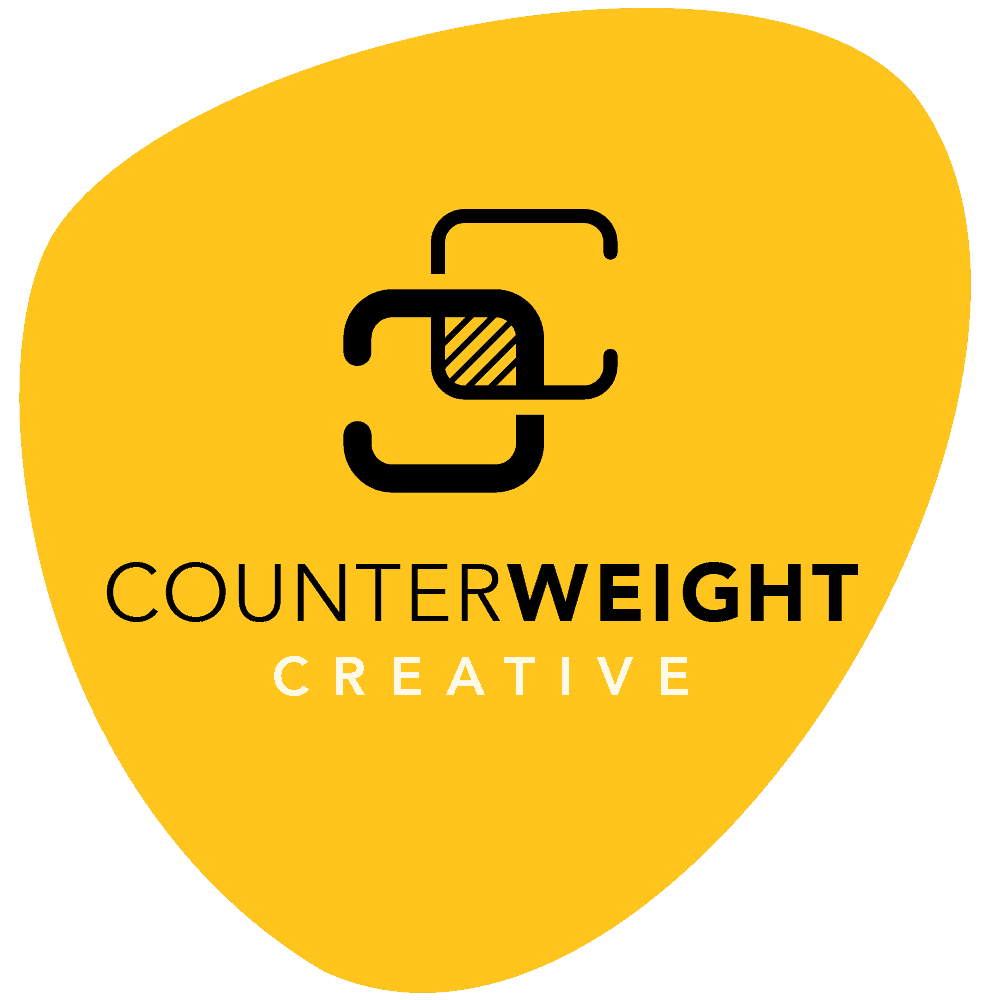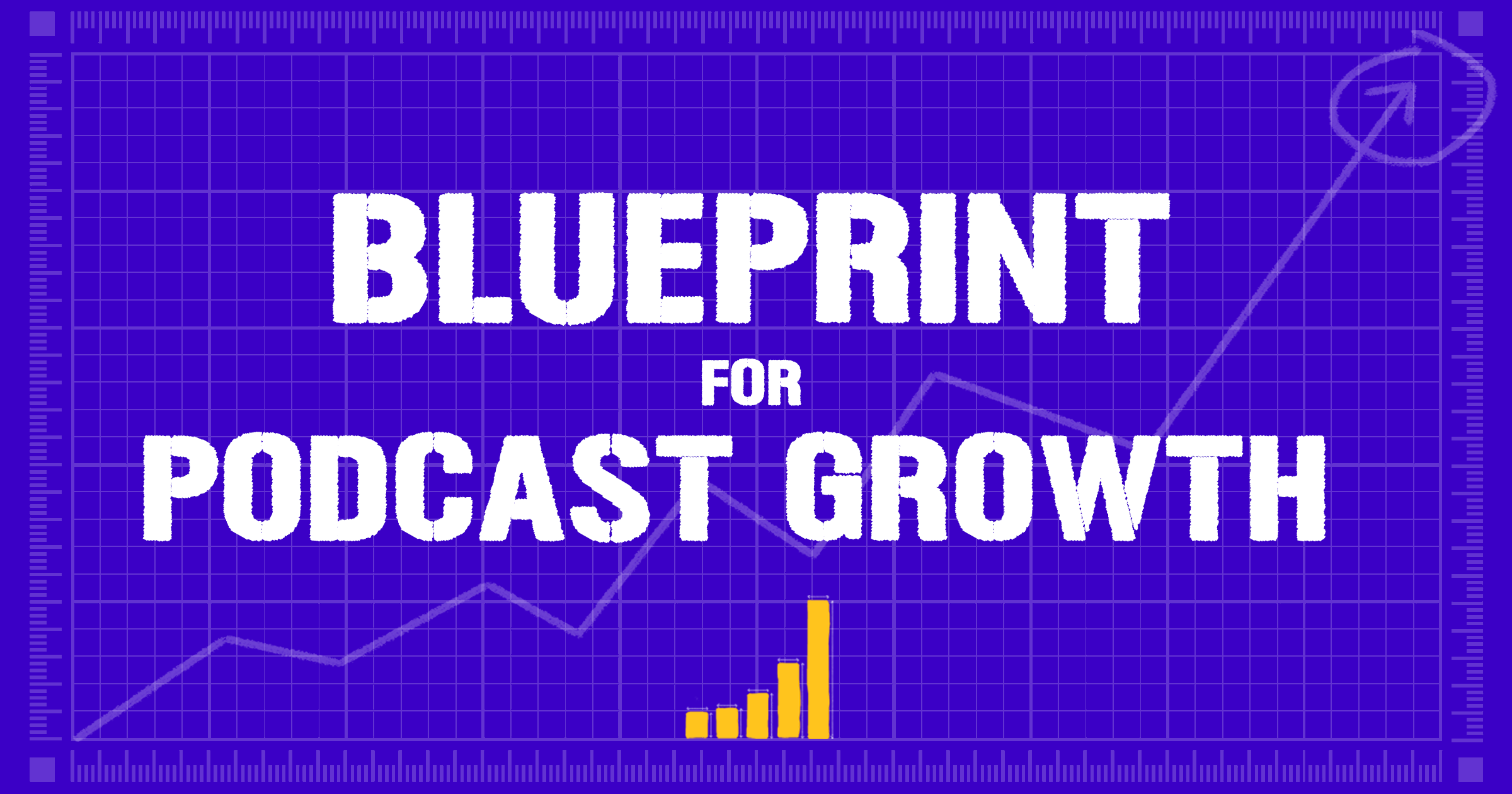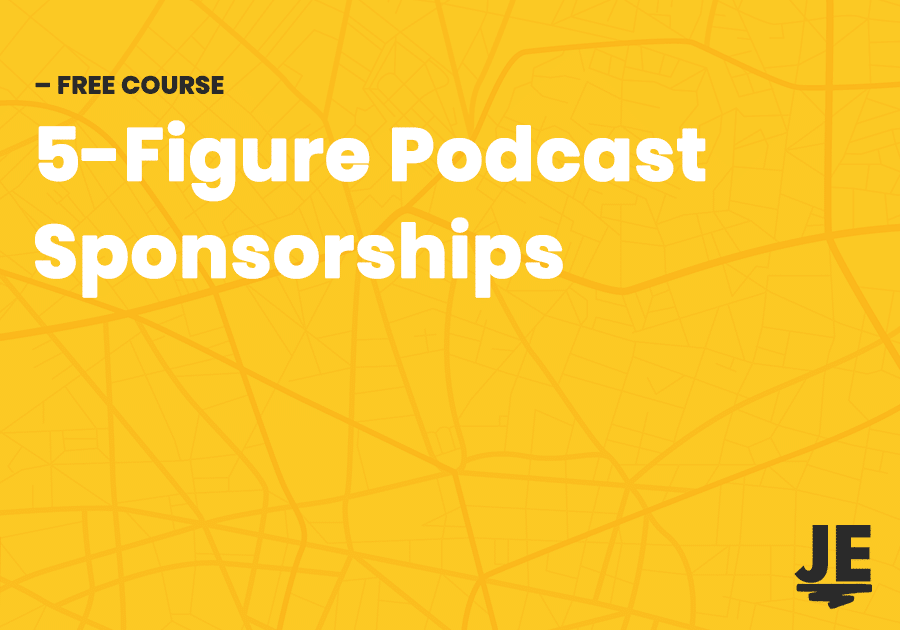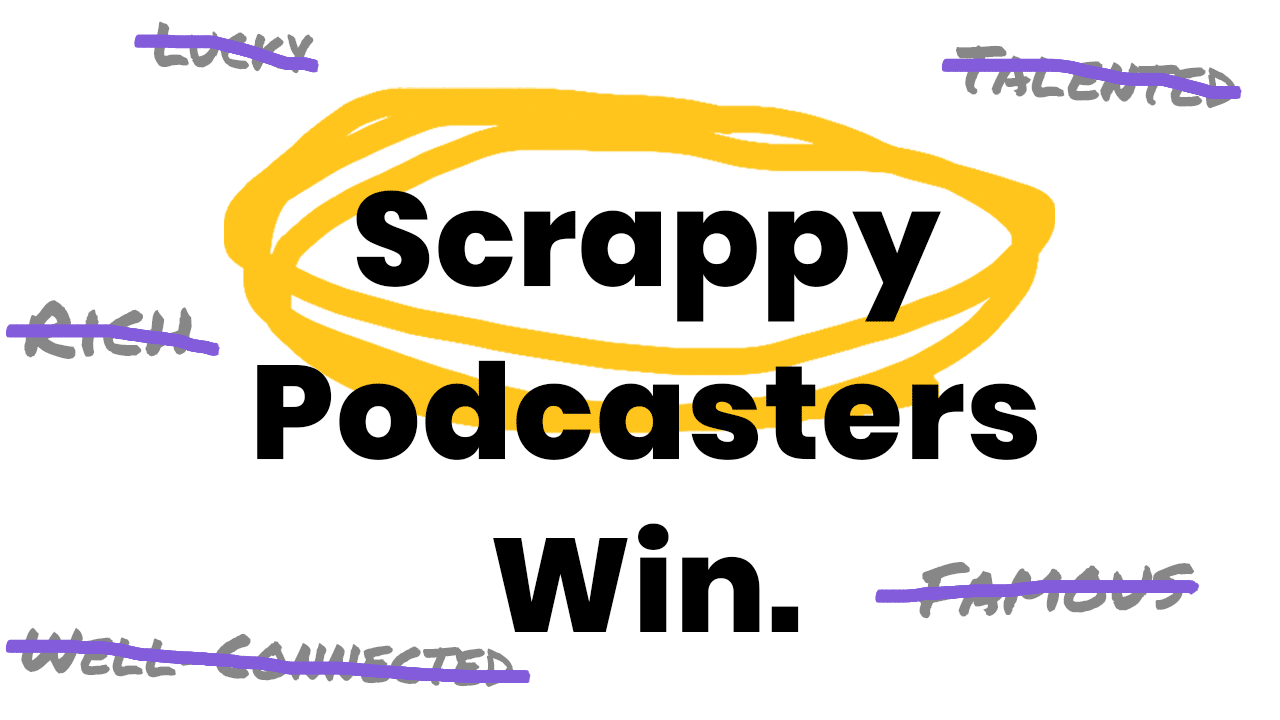So I stumbled across this interview with Oprah the other day where she gave some insight on why her show was so successful for so long.
“So one of the reasons why the ‘Oprah Show’ was No. 1 all those years was that we had an intention to be so. And before every single show from 1989 to the very last two shows, I would meet the producers beforehand and tell them, ‘Don’t just give me a show idea. Have an intention behind the show.’ And then I have to then find my intention within the show, at least some stream of truth so that I won’t be sitting there being a phony.”
To me, this validated a lot of my own thoughts, specifically around individual episodes and the mindset that is essential if you want to be putting out the best quality episodes possible.
Intention.
What Does Intention Mean For A Podcast Episode
Now, when I (and Oprah)* talk about intention, we’re not talking about setting the intention to give a great interview. Well, at least not just that.
* Whoa, did I just lump myself in with Oprah??? I better cool my jets here…
What we’re talking about is having an idea of an outcome or resolution to which we want the interview to lead, before we go into it.
Depending on what type of show your podcast is, this might mean having the intention for your audience to take a certain learning away from the show, to help them get to know you better personally as the host, to entertain them, make them think about some issue, and on and on and on.
Let’s Talk About Interview-Based Shows for a Sec
A big problem I see with podcasters who are struggling to grow their shows, is having guests on without having put any thought into what specifically they want the guest to talk about.
I get that at the start it can be hard to line up guests, but even if you’re simply taking any guests you can get at the start, to get the most out of the interview you actually have to put some thought into how they are best positioned to serve your audience.
If you know at least a bit about your guest already, ask yourself these questions:
- Why is this guest a good fit for my audience?
- What makes them unique from others in the industry/niche?
- What are their core areas of expertise which they are uniquely positioned to talk about?
- What about this guest and their story grabs my interest?
- What do I want my audience to take away from this episode?
- What questions do I need to ask to pull the answers and stories I want out of them?
- Feel free to add your own questions that help you in your process
If you find yourself struggling to answer these questions, that could mean two things. Either you don’t know enough about them and need to talk with or research them more until you can, or they just might not be that great a guest for your show.
Either way, you don’t want to find yourself hitting record without having been able to answer these questions. Sure, you might get some great guests and produce some engaging episodes, but as the saying goes, even a broken clock is right twice a day. Additionally, I would argue that going in with a defined vision for the episode, paired with a great guest, is the way to truly get the most out of the time you spend together.
If you want to take this a step further with your interview-based show, I recommend having a content calendar planned out a few months in advance, with each episode based around a specific topic.
With that foundation, I would start reaching out to guests to speak on that topic. Here are the questions I would use to set that up.
- What topic do I want to talk about on this episode?
- Who are my top 5 guests who I know are perfect for that topic?
- What distinguishes each guest from the others?
- Who’s the best fit for my audience?
- Who’s available?
Once you’ve used these questions to find a rockstar guest for your topic, it’s time to go through the questions mentioned above that will shape the conversation itself.
Aaaand Let’s Talk About Solo Shows or Other Formats
For anyone with a non-interview/guest based show who thought they were off the hook, think again.
In fact, planning, preparation, and intention are even more a prerequisite for a great solo without a guest to rely on to carry much of the conversation. You might remember a month or so ago I wrote about what we can learn from some of the top podcasters in the world, and used Amy Porterfield and her podcast as an example.
She plans like no other, and that preparation and intention for each episode has clearly paid off for her big time. That’s no coincidence. She knows that as a one-woman show on many of her episodes, she needs to know exactly what she wants her audience to take away from the episode, the key points she needs to make to reinforce the larger theme, and the stories she needs to share to help drive the message home and make it relatable.
If you’re shaking your head and saying that it all sounds like a lot of work, you’re absolutely right. You don’t get your podcast to a point where it’s standing out and attracting listeners by putting in the same amount of (or less) effort than 90% of other podcasters.
So, if you’re running a show with a non-guest format, consider these questions going into every episode.
- What specific learning/insight/information/thought/etc do I want my audience to take away from this episode? If you have a storytelling/comedy/etc podcast you might ask, how do I want my audience to feel after this episode?
- What are the points I need to make to get that idea across?
- What are some common objections or struggles with this episode’s theme that I need to have answers for?
- Are there any personal stories I have that will reinforce this idea?
These questions should be asked regardless of the format of show you run. In my experience, it’s all the more important if you produce a solo show where you’re carrying the episode on your own.
Also, if you have a roundtable type show with multiple hosts it’s good to be on the same page and be prepared to talk around a specific topic.
The Counter Argument that Drives Me Insane (almost literally…)
Ok, so I hear this all the time when talking to podcasters about how they prepare for their interviews and episodes, “I don’t want it to sound scripted, I want it to be natural and flow wherever the conversation takes it.”
Alright. I’m going to take a deep breath and calm down before getting into why this is the 100% wrong approach for most podcasters.
Ok. I’m good.
Critics of thorough preparation and planning might point to someone like Larry King who famously claims he almost never prepared for his interviews.
That might be true. But Larry King is one of the greatest interviewers of all time and has conducted thousands of interviews over the course of by the looks of it about 183 years. Are you at that level?
I’m guessing not, and that’s fine, we all need to start somewhere, and interviewing is an art and a skill that needs to be learned, practiced, and perfected over many years and many interviews.
I bring this up because I’ve been on both the giving and receiving ends of this in the past. And while I felt upset with myself about an interview or two that didn’t go well because I as the host wasn’t prepared, that didn’t come anywhere near to matching the annoyance at being a guest on shows where the host clearly wasn’t prepared and jumped around the conversation without ever getting into any substance.
Is that really the position you want to put your guests in?
No. No it’s not.
Let’s face it, some interviews just don’t go as well as we hope they will going in. But I never want the reason for a bad interview to be that I wasn’t prepared and didn’t have a clear vision for where I wanted to take the episode, something that sits firmly within the realm of things under my control.
Uncovering Your Guest’s Intention
So while Oprah’s first insight into why her show was so successful is incredibly useful to us, she continued the interview with this little nugget.
“Before every interview since 1989, I would ask the person I was interviewing, ‘Please tell me what your intention is.”
Cool, so that might not sound like much at first glance, but here’s why this is actually incredibly important.
Most people who come on your show are doing so because at least at some level they see it being beneficial to them in some way.
As a podcast host, if you want to attract high-level guests, you need to be encouraging this idea that yes, coming on your show does provide actual tangible benefits to them, whether that be promotion for a product or service they’re offering, increased exposure for them and their brand, or simply bathing in your aura for the duration of the recording*.
* If you can convince guests to come on your show based on this, let me know, I wanna get some of that aura bath too…
To do this, you need to know ahead of time what your guest’s intention is for your conversation. Knowing what they’re trying to achieve will allow you to shape the questions you ask in order to help your guest achieve their goals, as well as your own.
This is going to lead to positive experiences for your guests, make them look good, and in doing so, make YOU look like a fantastic host as well, encouraging more and bigger guests to show interest in your show.
Your Intention is the Foundation of Your Episode
Whatever your intention is, it – along with the intention of your guest – forms the foundation of each episode.
That intention will dictate the questions you ask, the stories you share, and the points you reference to support the theme of the episode and get your point across. This foundation is essential for consistently producing tight, cohesive, value-packed episodes that check all the boxes for your listeners, so don’t skip it.
I’d love to hear what you’re doing to create consistently stellar podcasts, or where you think you might be falling short. Leave me a comment along with your very favourite ice cream flavour. Next time we meet up, the ice cream’s on me 😉
If you want some guidance in setting up your episodes around an intention, pick up my free Episode Intention Setting Guide. It’s a printable worksheet to help you hone in on the idea and core behind each episode you put out, find guests, and make the best podcasts you possibly can.
Lastly, I would SUPER appreciate it if you would share this article if you enjoyed it, learned something, or it made you think. Hell, I’d love it if you shared it even if you thought this was entirely worthless and a waste of internet space, if for no other reason than to show your followers how clear it is that I have absolutely no idea what I’m talking about…
[mailerlite_form form_id=2]
- Why Wouldn’t They Just Google It? - March 14, 2021
- Before You Can Market Your Podcast, You Need To Create A Marketable Podcast - March 11, 2021
- Podcast Promotion & Marketing Are Different (Here’s How to Use Each Effectively) - March 10, 2021




